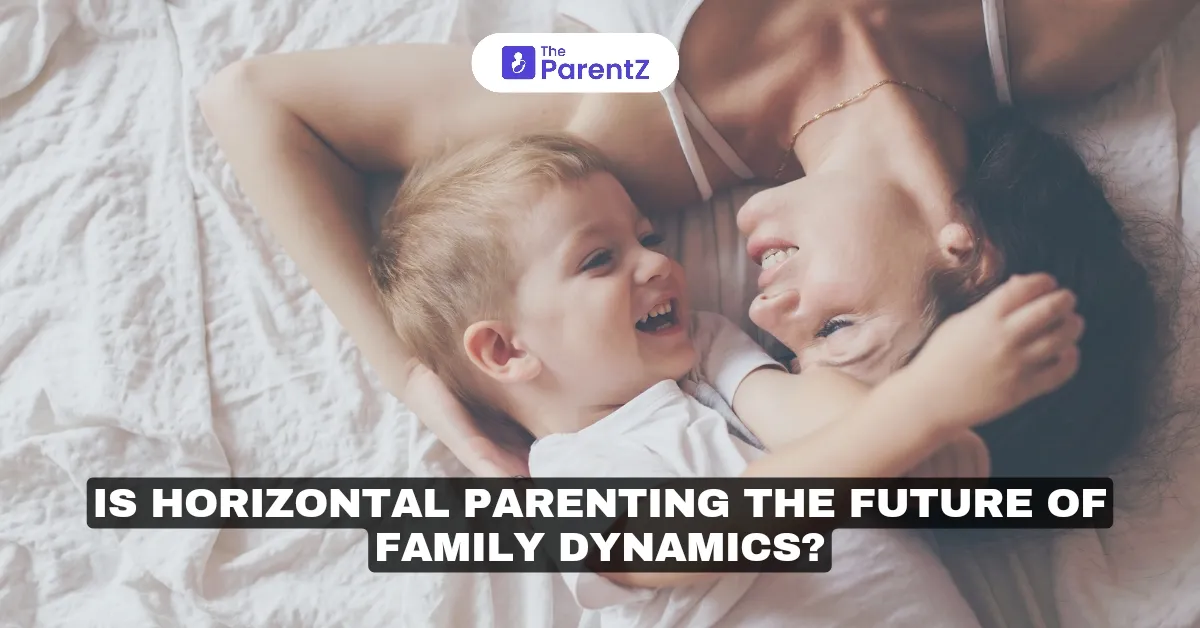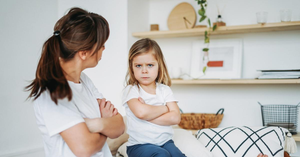While parenting styles have evolved in every generation, the trend of horizontal parenting is one of the most fascinating shits ever witnessed yet. In recent years, this trend seems to challenge traditional expectations. This is because, nowadays, when the schedules are packed and kids are supervised at every inch, horizontal parenting actually takes a step back. The question here is—is horizontal parenting really bringing a new, refreshingly low-key dynamic to family life? Read this interesting article to explore more.
What Is Horizontal Parenting?
Horizontal parenting is an approach where parents allow their kids to take the lead in play and exploration while the parent supervises with minimal interference. This style needs parents to get down to the child's level, physically lying or sitting on the floor. In literal terms, this position actually helps parents to observe and support while also giving their kids independence. Overall, horizontal parenting is all about allowing kids to become self-starters without overbearing guidance. While this approach is appealing for its simplicity, is it truly beneficial in the long run?
Benefits of Horizontal Parenting
With the increasing pressure to balance work, school, and extracurriculars, parents often feel stressed and burned out. As a response to this consistent need for engagement with kids, this is what gave rise to horizontal parenting. Here are a few key benefits of horizontal parenting.
1. Encourage Independence
The truth is, this parenting style is effective when it comes to letting your child explore things independently while keeping them under the parent’s watchful eyes. This ensures your child learns to deal with their own problems and make choices to develop self-confidence.
2. Reduces Parental Stress
Did you know nearly 70 percent of parents feel overwhelmed by the pressures of modern parenting? Yes, parenting burnout is real! However, horizontal parenting offers parents the time to rest and recharge themselves during playtime.
3. Stronger Emotional Connection
Did you know that the act of physically lowering oneself to a child’s level can have a big impact on a child's sense of security and emotional bonding? So when parents actually engage in activities like reading or drawing alongside their kids themselves, it creates a calmer environment.
4. Better Resilience
It is important for kids to experience minor setbacks to build resilience. So when parents are taking a less directive role, they are giving their kids the opportunity to develop a growth mindset at early stages while also teaching them to deal with challenges on their own. After all, children who learn to tackle problems independently tend to become more resilient adults.
Takeaway
While there are mixed opinions on the horizontal parenting style, everything has two sides. The same goes for this. On one hand, where the horizontal parenting approach is considered excellent when it comes to developing self-confidence, independence, and resilience in kids, some parents might argue that it may be too passive and neglectful. Despite this, horizontal parenting is a refreshing alternative to the overly indulgent helicopter parenting approach. At the end of the day, the choice is yours. And perhaps, in a time when both parents and children face high expectations, the best thing is to enjoy each other’s company.








Be the first one to comment on this story.